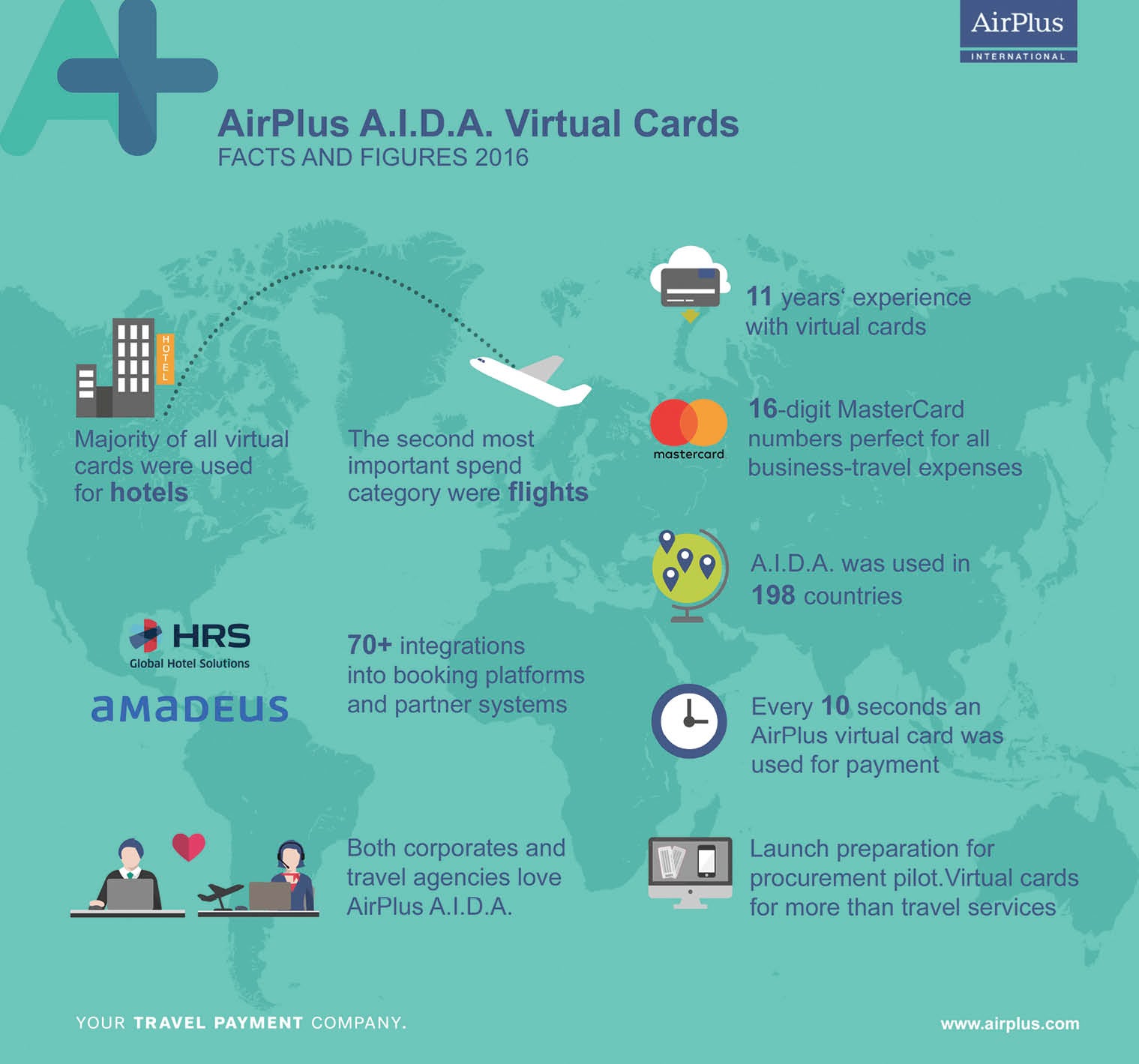As companies work to drive down costs and ensure every penny of their travel budget is well spent and accounted for, more and more are looking for new ways to gain better visibility and greater control over their travel expenditure. Increasingly they want central settlement through corporate lodged accounts and systems that offer seamless integration of booking processes, plus easier expense management.
At the same time as they target business travellers, low-cost carriers are expanding into major airports and integrating into global distribution systems. Also the new generation of mobile booking and payments services are changing the payments landscape for corporate travel, as customers look for new ways to book, amend and pay for travel from a wider range of channels. Meanwhile, regulations such as the revised Payment Services Directive (PSD2) for example, are set to accelerate the competition and digital disruption of payments, and will be a major challenge for the corporate sector.
However, Mario Zorn, associate director of virtual and mobile payment at AirPlus International, points out some good news for agile, shrewd corporate travel companies. “With the acceptance and integration of a growing number of self-services, they can get even closer to business travellers as third parties, such as travel agencies, and travel assistants must adapt to meet the challenges of this new business landscape,” he says. “This trend offers exciting opportunities for them to create new products or services to help travellers and companies to do their job more efficiently and cost effectively.”
With 49,000 corporate clients, AirPlus International is a leading international provider of business-travel management solutions, including the payment and analysis of the cost of trips. It offers payment acceptance for lodged accounts within the Universal Air Travel Plan payment network. By issuing lodged accounts, customers participate in integrated booking processes, and benefit from enriched data and integration into travel-expense management.

“Our payment solutions allow our customers to optimise the value chain of business travel and automate processes from booking to settlement in a way that makes payment more and more seamless and invisible for customers,” says Mr Zorn. “By providing a partner network, we offer a fully integrated platform which offers customers maximum automation and data quality, as well as the most effective expense management and further internal processes.”
The company has developed partnerships with the online-booking engines of airlines, hotels, train companies, car rental groups and the new generation of accommodation bookers, providing them with an invisible reservation and rental process. With car rental companies, for instance, there is often no need to pay in advance, as customers simply have to present a driving licence when collecting their car.
The whole booking and payment takes place with just one or two clicks of a mouse, thanks to the virtual credit cards that sit behind the system
Similarly, when business travellers book an apartment through an accommodation provider, which has a partnership with AirPlus International, payment and billing go directly through their employer’s centrally paid company account – a fast, easy and transparent process.
Mr Zorn predicts that over the next few years, corporate travellers will increasingly demand a greater variety of payment options, and will expect systems to become more integrated and less visible. Direct, automated settlement and integration for corporate travel will be essential, he believes.
One of AirPlus International’s most successful products is AirPlus A.I.D.A. Virtual Cards. In 2016 its transaction volume increased by 36 per cent over the previous year. The digital version of a MasterCard credit card, it provides transparency, security and efficiency for all parties. Users generate individual card numbers that are valid for one transaction only and then become void. This way, every service settled through AirPlus International is allocated a unique number.
A growing number of companies, including travel agencies, are using AirPlus A.I.D.A. Virtual Cards to pay for services booked centrally before trips, such as flight tickets, hotel accommodations and rental cars. With AirPlus A.I.D.A. Virtual Cards, the company can make all payments centrally and it receives a clearly structured overview of its travel costs that it can match automatically against its cost policy. Business travellers no longer need to use their private cards to pay for services or to submit travel expense reports.
“Already today we’re working on scenarios where the whole booking and payment takes place with just one or two clicks of a mouse, thanks to the virtual credit cards that sit behind the system,” says Mr Zorn. “More and more people involved in all aspects of business travel are looking to enjoy the benefits of virtual credit cards. It’s this kind of new technology and innovation that forward-thinking travel providers are already embracing to make booking and paying for business travel faster, easier and more transparent than ever before.”
For more information please visit www.airplus.com

